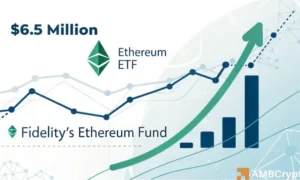The Evolving Narrative of Bitcoin: A Debate on Its Role as an Inflation Hedge
Introduction
In the tumultuous landscape of cryptocurrencies, Bitcoin stands out as a topic of fervent debate. Figures like Peter Schiff openly challenge the notion of Bitcoin as a reliable hedge against inflation, arguing that its trading patterns resemble those of tech stocks rather than traditional safe-haven assets like gold. This discourse gains importance amid economic uncertainty in the U.S. and a growing interest from lawmakers to integrate digital assets into mainstream financial policy.
Peter Schiff’s Skepticism on Bitcoin
Peter Schiff, a well-known advocate for gold, has consistently questioned Bitcoin’s functionality as an inflation hedge. His stance stems from observable price movements that showcase Bitcoin’s alignment with the NASDAQ rather than a decoupled, stable asset. Schiff highlights that Bitcoin lacks the stability required to serve as a dependable store of value, often fluctuating in response to broader market trends and investor speculation. He warns potential investors that while Bitcoin may offer short-term gains, it may not provide the long-term wealth protection associated with traditional assets like gold.
Senator Lummis and the Economic Perspective
Amidst Schiff’s criticisms, Senator Cynthia Lummis has proposed a more optimistic outlook on Bitcoin, suggesting its integration into broader economic policy as a remedy for the U.S.’s staggering national debt, which currently stands at $36 trillion. Lummis endorses the BITCOIN Act as vital legislation that could facilitate Bitcoin’s adoption while clarifying regulations surrounding digital assets. Her advocacy reflects a growing interest among policymakers to explore alternative financial solutions amidst traditional economic challenges. This juxtaposition of viewpoints underscores the ongoing debate over Bitcoin’s viability as both an investment vehicle and a policy tool.
Market Conditions Influencing Bitcoin’s Price
In April, Bitcoin experienced a notable price surge, rising over 14%. This rally was driven by easing inflation data and expectations of upcoming interest rate cuts from the Federal Reserve. As macroeconomic indicators signaled a potential shift in monetary policy, Bitcoin’s performance began to diverge from that of traditional assets like the S&P 500. Analysts point to favorable trade conditions and renewed institutional interest as key factors propelling Bitcoin’s value, distinguishing it from the more stagnant performance of stock markets. However, questions remain regarding the sustainability of this momentum in the face of possible economic headwinds.
Contrasting Views on Bitcoin’s Nature
The discourse around Bitcoin’s role is further enriched by varying perspectives from financial experts. Jurrien Timmer, Director of Global Macro at Fidelity, emphasizes Bitcoin’s duality, likening it to both a hard currency and a speculative asset. Unlike Schiff, Timmer posits that Bitcoin’s performance can adapt based on prevailing financial conditions, occasionally displaying attributes characteristic of stable assets while also trading like riskier investments. He points to historical data suggesting that Bitcoin’s price movement is often linked to the growth of the global money supply and equity markets.
Long-Term Confidence in Bitcoin
Despite the varying opinions, data from analytics firm Glassnode reveals a notable trend among long-term Bitcoin holders. In recent months, approximately 254,000 BTC have been added to wallets, implying a sense of confidence and commitment to Bitcoin’s future potential. However, as Bitcoin approaches pricing milestones, potential sell-side pressure could emerge, complicating its market landscape further. This ongoing accumulation indicates a persistent belief that Bitcoin holds value worth preserving despite its current volatility.
Conclusion
The discourse surrounding Bitcoin as an inflation hedge is multifaceted and evolving. With voices like Peter Schiff cautioning against its stability and advocates like Senator Lummis promoting its legislative inclusion, the future of Bitcoin remains uncertain. Market conditions, investor sentiment, and regulatory developments will continue to shape the narrative, influencing whether Bitcoin solidifies its position as a hedge against inflation or remains a speculative asset. Investors must stay informed, navigate the complexities, and conduct thorough market research as they engage with this dynamic financial landscape.

















